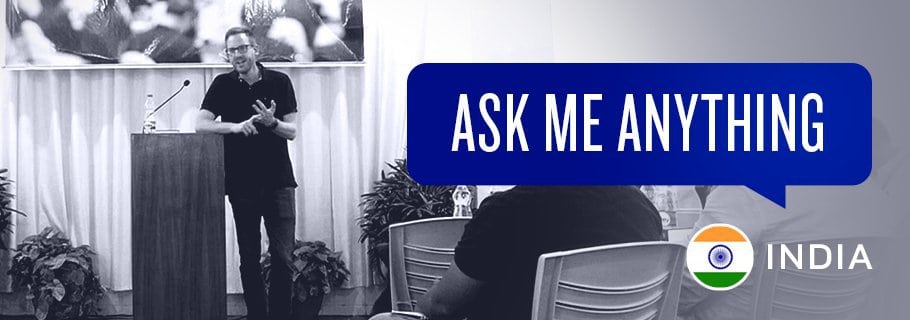During my recent trip to India I was asked what I thought about the future of reading and about the different trends I see in reading (focusing on the different media through which people encounter words). I was also asked for tips to help people remember what they read. Here are my answers.
Transcript
How do you think the average person’s reading habits are changing? Is it for the better?
I think people are still reading, but maybe not the way they were before. I expect that we’re becoming skimmers rather than readers and that’s because a lot of our reading is happening on devices and I’m not sure that, most of our devices anyways, were really made for deep reading. So your mobile phone, which is where most people, especially young people, are doing the majority of they’re media consumption, I think it’s a better device for video than it is for reading. The ethos of the device, what’s embedded in the device, just as an electronic device, does not give itself to deep comprehension, to deep study. It gives itself to quick reading, to skimming, to moving on to the next thing. You know, you’ve heard the phrase, the medium is the message, so, what Marshall McLuhan meant is that, you shouldn’t just look at the words on the screen, you should look at the screen itself, you should look at the device itself. That is truly the message. You can’t get away from the device. So, in that way, I think a printed book is in some way superior to a mobile phone when it comes to reading.
However, the world being the way it is, not everybody has equal access to books and a lot of people, you can get books to them, you can get material to them in electronic formats with a speed and with an ability that’s never been seen before. So, what most people don’t account for is the adaptation of the, our ability to adapt. So I think over time, we’ll learn habits and we’ll foster disciplines that will allow us to read better on these things. It may mean that we have to go to single function devices more, like Kindles or things like that where we can read on an electronic device. But I do think we will adapt. I do think there’s probably more of a future in electronic reading than on print reading just because of the nature of the world today and I think we’ll be okay in the end. But I still want to push people to read, not to be too quick to go to YouTube and to get the quick answer.
So I think YouTube is supplemental to the real thing which is still deep study, whether that’s studying, taking courses, learning from people directly, or whether that’s reading their books. I still want to push people to the challenge of reading, deep reading, reading well, reading things that are a little too hard for you and yet finding that you grow in your ability to understand them, and so on. I don’t want to condescend too much to the media of the world around us.
What have been the most effective ways you’ve found to remember what you read?
Yes, I think there’s lots of ways to remember what you read and everybody needs to develop their own tricks, their own way of doing that. Highlighting, writing notes are very, very important to make sure you’re really engaging with it. The way I like to think about it is, you end up with a book, a big stack of books and you just take one of those books. You know, so you’ve got 50 copies of the same book, you’re going to take one of them. Now your job is to make that book your own. So this book will be different from every other. How? Because I’m highlighting the things that are important, I’m underlining the things that are important to me. I’m writing notes in the margin about things that are important to me. I’m really engaging with this book. It’s like I’m sitting face to face with the author and we’re having a discussion. So, I’m writing questions. What do you mean by this? And hoping that later in the text he’s going to answer that question. I’m writing things in the margin. I’m doing everything I can to make sure I’m really engaged with that book.
Later on, either you have to flip back through the book, or what I like to do and I’ve actually done this, is hired somebody to go through and type out all the things that I have highlighted for me. And then I keep them in software called Evernote. So I have a long list of, here’s a book, and here are all the different quotes from that book. So I can search, I can look, I can scroll through quickly and I can see all the things that are most important to me in that book and I’ve got it stored in an electronic format. Or, you can just go through and type it out yourself, if you prefer.
There’s another whole system that’s based around using little index cards, little pieces of paper and as you read the book, you write it on the index cards and then you just keep them and you go through them and read them from time to time as a technique for remembering what the book contains. There’s lots of different ways of doing it. I think especially with those books in life that are most important to you it makes sense to really read them well, to make that book your own and then to find a way of going back in time to go over the high points of the book again.










